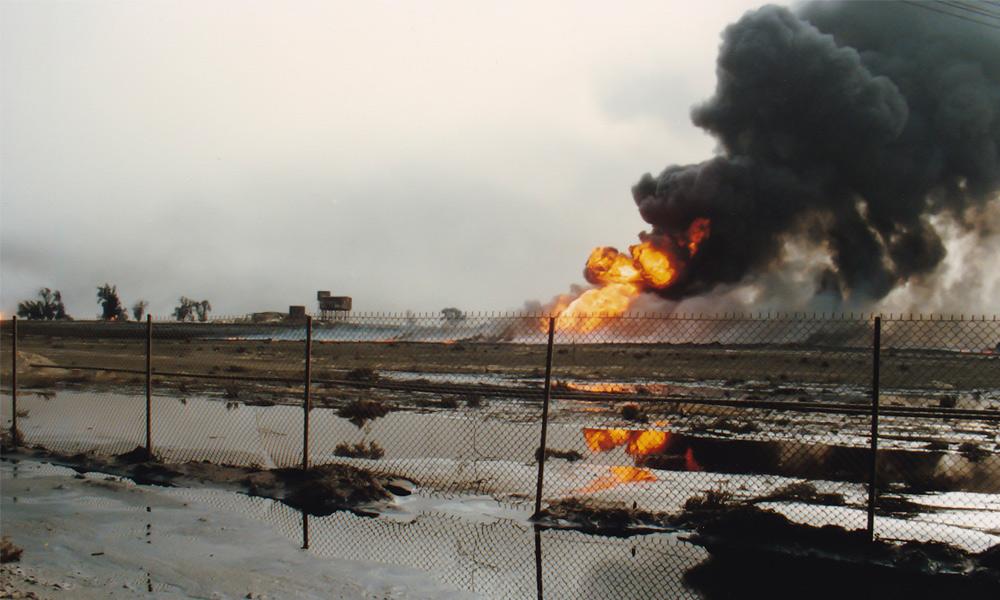Study analyses crimes against nature and their consequences
12/20/23
The Universidad Carlos III de Madrid (UC3M) has prepared a study approaching crimes against nature from the perspective of international law. This article takes the war in Iraq between 2014 and 2017 as a reference and has been published in the international scientific journal Crime, Justice and Social Democracy.

Lecturer Montserrat Abad, a professor in UC3M’s International Law, Ecclesiastical Law and Philosophy of Law Department, has researched the crimes with environmental consequences committed by Daesh in Iraq during the last armed conflict. The article takes a critical approach to the lack of official clarification of environmental crimes.
"The study examines the main parameters that condition environments such as Iraq's, which are devastated by climate change, environmental degradation and overlapping layers of violence, along with other political, economic and social problems, in order to examine how the law (particularly international law) can have a positive catalytic effect," says the researcher. In this regard, it explores the bodies that could be responsible for investigating crimes against the environment committed by Daesh. "The terrorist group practised a scorched earth policy in the territories from which it was withdrawing as a result of its defeat," says Abad.
It also analyses the main obstacles and legal channels that can be used to obtain justice for this type of crime, highlighting how this whole issue lies in an area of convergence between multiple legal sectors: human rights, environmental law, laws of armed conflict, international criminal law, international responsibility and transitional justice, among others. "This intersection of legal areas offers complexity, but also new possibilities. In particular, the relationship between nature and transitional justice deserves to be explored further, in order to promote the right to truth in a comprehensive way and to ensure that a pro-nature perspective begins to become transversal," says the author.
The main outcome of this research is that there is an official body, called UNITAD, created by the United Nations Security Council in 2017 to investigate mass atrocity crimes in Iraq, which would still have time to conduct research on the environmental consequences of the latest armed conflict in the country. "Given that this body was created with the aim of gathering and preserving evidence of crimes committed by Daesh in order to promote accountability, it should play a crucial role in researching crimes against nature, some of which would be linked to the commission of genocide against the Yazidis. This research work by UNITAD would perform several essential functions: it would promote awareness, while helping to prevent impunity and ensure adequate reparations. In short, UNITAD's actions could generate a chain reaction, which would help to define and prosecute the crime of ecocide at the international level", highlights Montserrat Abad.
The study appeals to the need for a holistic approach to crimes against nature (which includes humans) through the Iraqi case. The findings of this research can be applied to other post-conflict scenarios in order to prevent another cycle of armed conflict or terrorism. "It is crucial to take a comprehensive view and to take into account that nature is a common good for future generations. Only when official bodies take up this challenge and carry out their work accordingly will qualitative progress be made," the author concludes.
Bibliographic reference: Abad Castelos, M. (2023) “Towards a Holistic Consideration of Crimes Against Nature Committed in Times of Armed Conflict: A Critical Approach to the Case of Iraq”, International Journal for Crime, Justice and Social Democracy, 12(3), pp. 77-92. doi: 10.5204/ijcjsd.2707.


